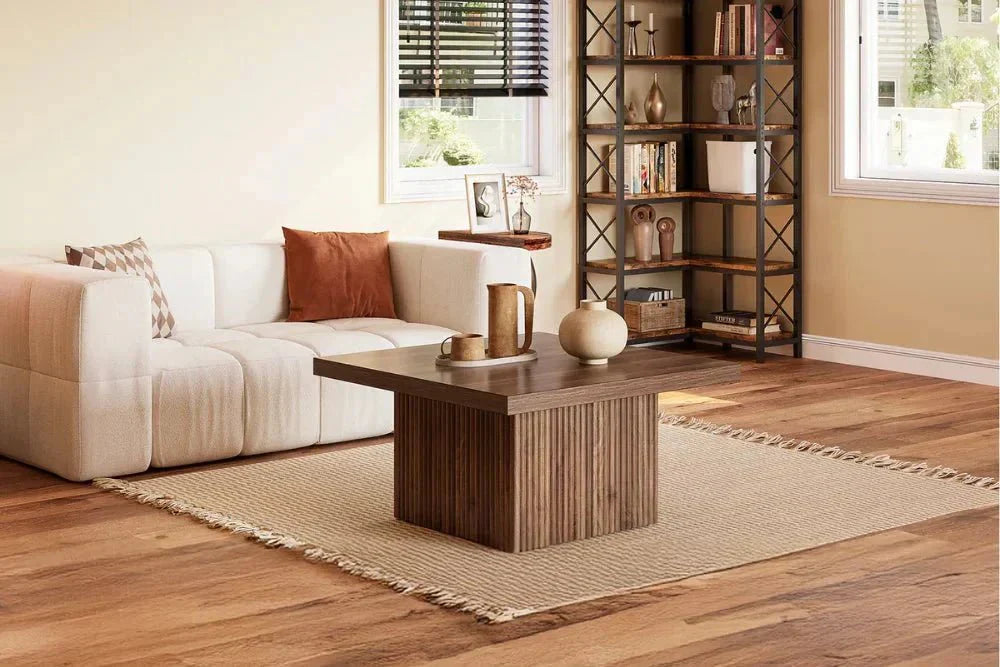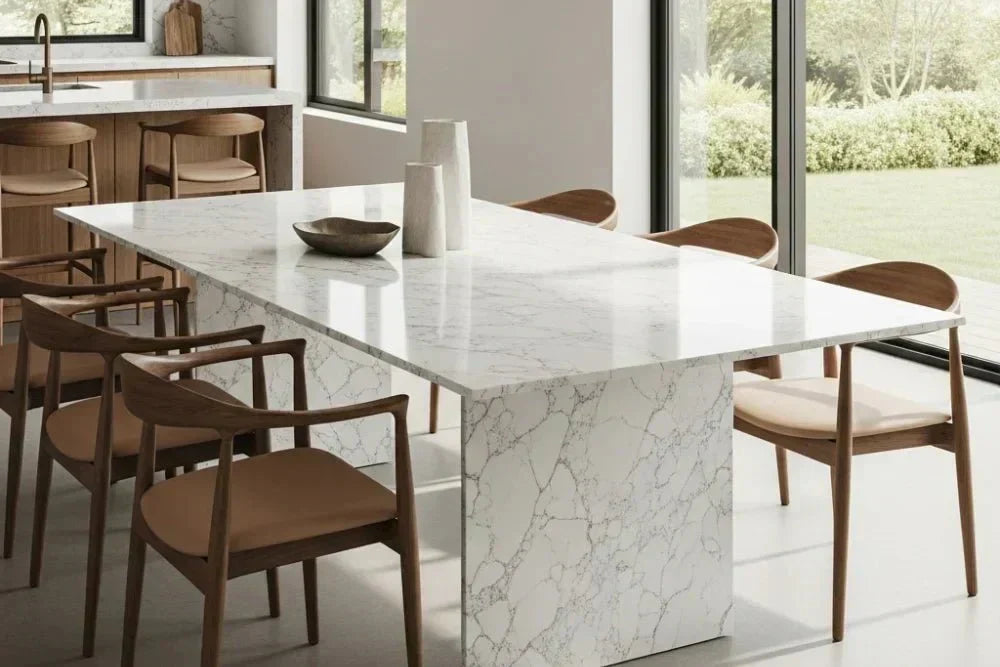Introduction
While often used interchangeably in home furnishing discussions, console tables and sofa tables serve distinct purposes in British interiors. Understanding their unique characteristics helps you select the right piece to enhance both the functionality and aesthetic appeal of your space. From compact city flats to spacious country homes, each table type offers specific advantages for different areas of your house.
Understanding Console Tables
Console tables stand as versatile statement pieces in British homes, particularly valued for their ability to transform underutilised wall spaces into functional and decorative areas.
Placement & Positioning
- Ideal for entryways and hallways as welcoming focal points
- Perfect for filling empty wall space in living areas
- Can serve as room dividers in open-plan layouts
- Often positioned beneath mirrors or artwork for balanced composition
Design Characteristics
- Typically taller and more slender than sofa tables
- Available with drawers, shelves or open designs
- Range from minimalist modern to traditional farmhouse styles
- Often feature statement legs or decorative bases
Functional Uses
- Display surface for decorative items and family photographs
- Practical storage for keys and mail in entryways
- Perfect platform for table lamps in darker British interiors
- Additional serving space during entertaining
Exploring Sofa Tables
Sofa tables specifically enhance living areas by maximising the space behind sofas, combining practicality with subtle style.
Placement & Positioning
- Designed specifically to sit behind sofas
- Should align neatly with sofa back height
- Perfect for defining living zones in open-plan spaces
- Creates valuable surface area without occupying floor space
Design Characteristics
- Generally lower in height than console tables
- Longer proportions to span sofa width
- Often feature integrated power outlets or USB ports
- Available in various depths to suit different room sizes
Functional Uses
- Convenient spot for drinks and remotes within easy reach
- Displays decorative items that complement sofa styling
- Creates visual balance behind large seating pieces
- Additional lighting position with table lamps
Key Differences Compared
Height & Proportions
Console tables typically stand taller (30-35"), making them suitable for wall placement, while sofa tables align with standard sofa heights (24-30") for seamless integration.
Primary Function
Console tables serve as decorative focal points and storage solutions, whereas sofa tables prioritise convenience and accessibility from seating areas.
Ideal Placement
Console tables excel in entryways, hallways and against blank walls, while sofa tables specifically enhance living rooms when positioned behind sofas.
Style Considerations
Console tables often make bolder design statements, while sofa tables tend towards subtlety, complementing existing furniture without dominating the space.
Choosing the Right Table
Select a Console Table If:
- You need to fill an empty wall space
- You want to create an entryway focal point
- You require decorative display surface
- You need additional storage in hallways
Choose a Sofa Table If:
- You want to utilise space behind your sofa
- You need convenient access to everyday items
- You seek to define living areas in open-plan spaces
- You want to add lighting behind seating
Styling Recommendations
For British homes, consider these styling approaches:
Console Table Styling
- Create layered displays with artwork above
- Use table lamps to enhance ambient lighting
- Combine practical items with decorative pieces
- Choose styles that complement your interior architecture
Sofa Table Styling
- Keep items low-profile to maintain sightlines
- Use matching lamps for symmetrical elegance
- Include practical baskets for remote storage
- Ensure adequate clearance behind sofa



